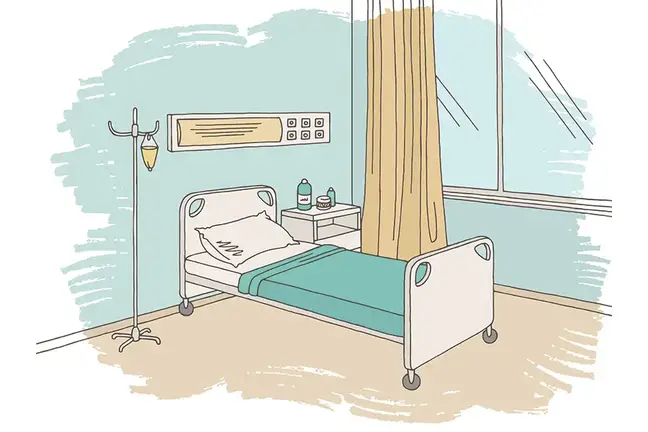Keeping Moms and Babies Healthy and Safe
Maternal and Child Health at Dartmouth Health
An aging population doesn’t mean less care for moms and babies. We know that investments in maternal health drive better health outcomes for women and increased productivity for our communities.
We are the largest provider of obstetric care in New Hampshire: Our providers care for one in four mothers delivering babies in the state. In 2024, the Obstetrics and Midwifery program at Dartmouth Hitchcock Medical Center (DHMC) was again nationally recognized by U.S. News & World Report on its annual list of “high-performing hospitals,” the highest award a hospital can earn for this category.
Programs
We support mothers and babies across a full spectrum of care, including:
- Pre- and post-partum care – Our OB/GYN providers cover every aspect of women's healthcare, with obstetricians, nurse midwives, nurses, physician assistants, and advance registered nurse practitioners supporting our patients' pregnancy and other needs throughout all areas of care.
- Moms in Recovery – A groundbreaking, nationally recognized program for pregnant and parenting women who struggle with substance use, Moms in Recovery connects patients with other women who are working to stop using substances and support each other as parents, forming close relationships with counselors, psychiatrists, midwives, pediatricians, case managers, and recovery coaches. A similar program is offered at Cheshire Medical Center in Keene.
- The Baby Café – Southwestern Vermont Medical Center in Bennington, VT, hosts a weekly “Baby Café” to improve community health and reduce disparities by offering free programs that provide professional breastfeeding support and peer social connection.
- The Purple Pod – A special clinic for patients with pregnancies complicated by substance use disorders that allows patients to receive the same comprehensive services that we provide at our outpatient Moms in Recovery program, but in an inpatient setting at DHMC.
- The Flamingo Program – Helps people suffering from Perinatal Mood and Anxiety Disorders (PMADs), which encompasses perinatal mood disorders and postpartum depression.
- The Maternal Mental Health Navigator Program – The Maternal Mental Health Leadership Alliance says 75% of women don't get the mental health care they need after giving birth. Dartmouth Health Children’s launched this new program at its clinics in Lebanon, Manchester, and Bedford to guide patients through every step of their pregnancy and post-childbirth.
Partnerships
Care coordination across the state and region is one of the pillars of Dartmouth Health. Our growing list of partnerships in providing maternal and child care includes:
- Dartmouth Health is home to the Northern New England Perinatal Quality Improvement Network (NNEPQIN), a voluntary consortium of professionals and organizations involved in perinatal care across northern New England. NNEPQIN works to improve perinatal health across this region through collaboration on clinical guidelines, quality improvement projects, case reviews, and educational conferences.
- The New Hampshire Perinatal Quality Collaborative (NHPQC), coordinated by Dartmouth Health’s Regional Program for Women’s and Children’s Health, aims to build a patient-centered, data-driven, evidence-based, sustainable infrastructure, through community based coalitions focused on assuring high-quality, safe care to the state’s vulnerable populations and those experiencing negative maternal and child health outcomes.
- Families Flourish Northeast includes a residential treatment facility focused on women's and children's needs planned to open in Lebanon in 2026. Dartmouth Health clinical providers and Population Health team have provided advice, expertise, technical assistance, and financial contributions to help Families Flourish establish its clinical approach and grow as an organization.
- Dartmouth Health has established a new partnership with Elliot Hospital in Manchester, providing labor and delivery services and new opportunities for the education and training of the next generation of physicians specializing in women’s health.
Advocacy
Dartmouth Health has long advocated for legislation at both the state and national levels that promotes maternal and child health and the well-being of our patients. The most recent is New Hampshire Senate Bill 246, the “MOMnibus 2.0” bill. This wide-reaching initiative would provide “maternal depression screening for new mothers, increase access to health care services for new mothers, and ensure job protection within the employer-sponsored New Hampshire paid family and medical leave plan.”
Federally funded programming
Dartmouth Health’s Rural Maternity and Obstetrics Management Strategies (RMOMS) grant, funded by the federal Health Resources and Services Administration (HRSA), has made significant strides in its mission to improve outcomes for pregnant and parenting mothers in New Hampshire’s North Country.
Nearly 16 years ago
Heather Martin’s sister, Jennifer, died by suicide just a few weeks after giving birth to a baby girl, her first and only child. Martin, her family, and Jennifer’s medical providers now know she was suffering from postpartum psychosis, a severe mental illness that can develop shortly after childbirth. Out of grief for the loss of her sister came a mission to stop this tragedy from occurring in other families, and now Martin is the program director for Dartmouth Health’s Maternal Mental Health Navigator program, a first-of-its-kind service embedded in the Department of Pediatrics. Similar to the provisions of MOMnibus 2.0, the Navigator program provides depression screening for mothers included in regular well-child visits at its clinics in Lebanon and Manchester. The Navigator program also facilitates peer support groups for new parents and advocacy work. “Moms in our state need help,” Martin says.
“By meeting moms where they already are, we can catch maternal mental health struggles early and connect moms with the help they need before a crisis.”






